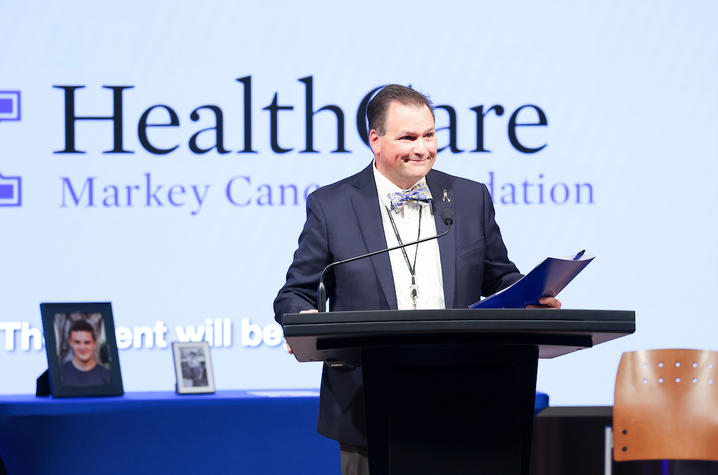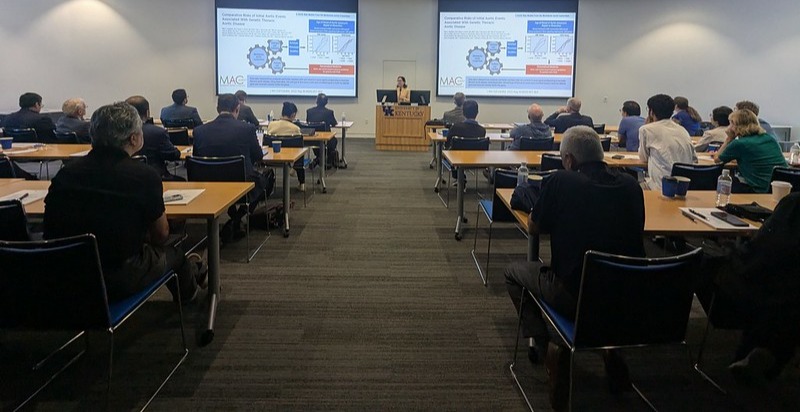News
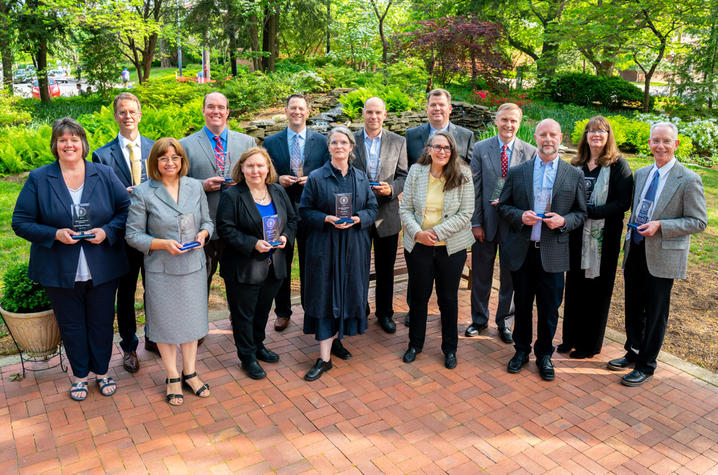
This week, the University of Kentucky Board of Trustees approved 16 University Research Professorships for the 2019-20 academic year.
The purpose of the University Research Professorship program is to recognize and publicize research accomplishments of scholars across the full range of disciplines at UK. The award amount is $10,000 for one year, to be used to further the research, scholarship and creative endeavors of the awardee.
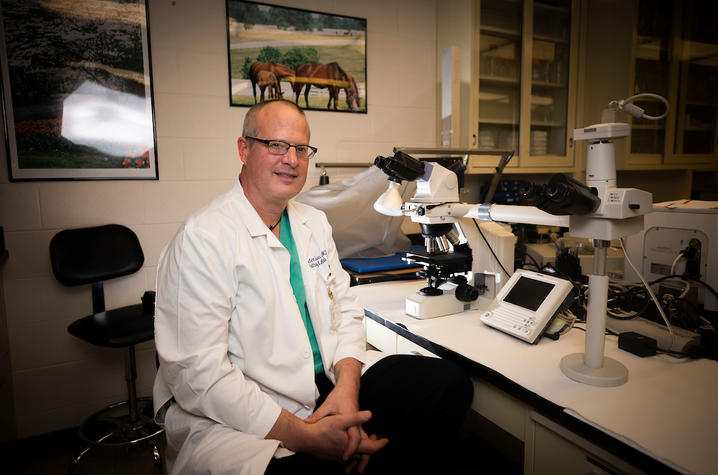
In the past, using the terms "Alzheimer’s disease" and "dementia" interchangeably was a generally accepted practice. Now there is rising appreciation that a variety of diseases and disease processes contribute to dementia.
According to Nina Silverberg, Ph.D., director of the Alzheimer's Disease Centers Program at National Institute on Aging (NIA), part of NIH, in the past many of the people who enrolled in clinical trials for Alzheimer's drugs likely did not have amyloid — the sticky substance that gums up neurons and interferes with thinking — in their brains.

The NIH Center of Biomedical Research Excellence (COBRE) on Obesity and Cardiovascular Diseases, in collaboration with the Center for Clinical and Translational Sciences (CCTS) announce the availability of limited funds to support pilot projects focused on research examining obesity-associated diseases. Emphasis for support will be placed on pilot projects that examine the relationship between obesity and cardiovascular diseases, type 2 diabetes, cancer, or neurodegenerative diseases. These pilot grants are intended to assist investigators new to this area of research
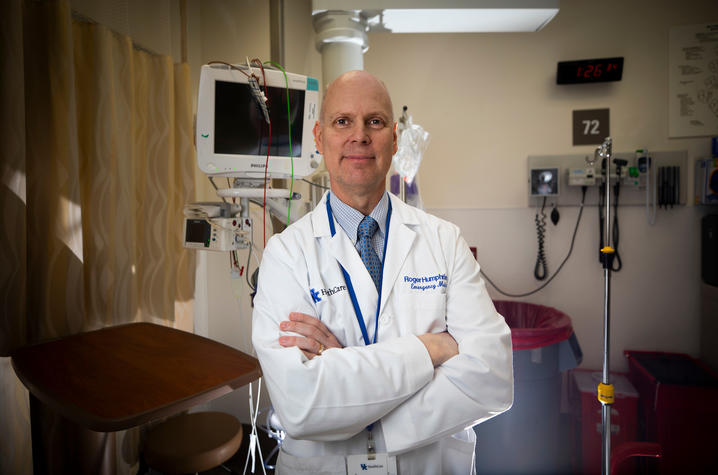
When Dr. Roger Humphries was among the first six people to complete an emergency medicine residency at UK HealthCare in 1996, seeing a patient who had overdosed on opioids was uncommon. Today, as the chair of the department, Humphries has implemented policies and programs to help address the needs of the 350 to 400 patients they see per day who are affected by complications related to opioid use disorder.
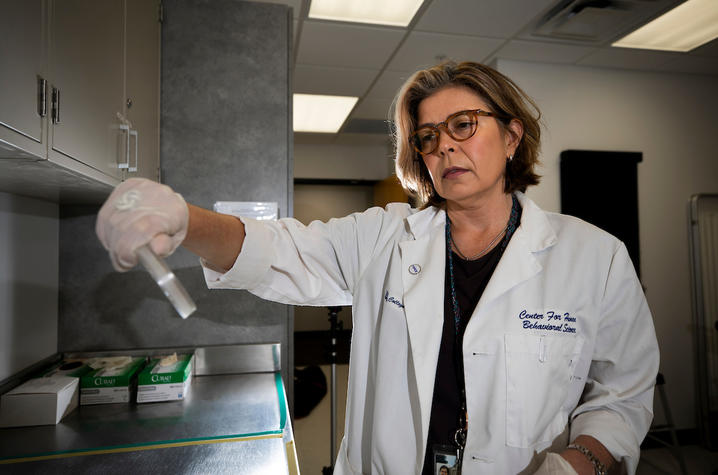
After being revived with Naloxone in the emergency room, patients immediately enter withdrawal. Cold chills, vomiting, diarrhea – “dope sickness” is what many call it. The feeling is hard to describe, but many people who’ve experienced it or witnessed it say it’s like the worst flu times 10.

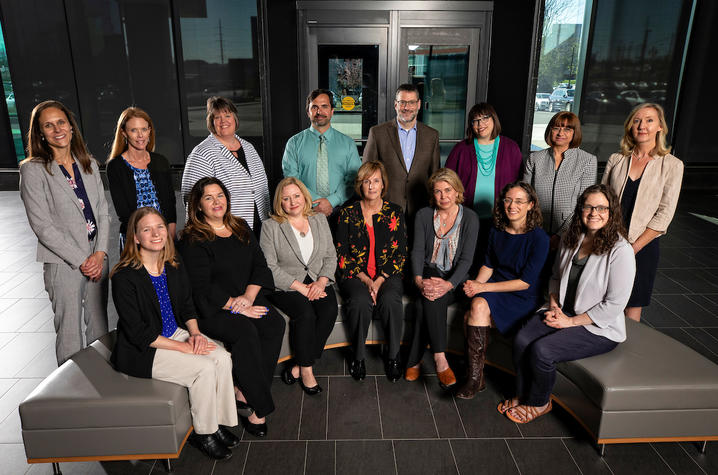
In the largest grant ever awarded to the University of Kentucky, researchers from UK's Center on Drug and Alcohol Research (CDAR) and across campus — in partnership with the Kentucky Cabinet for Health and Family Services and the Justice and Public Sa

Mark Williams, MD, Chief Quality and Transformation Officer at UK HealthCare and Director of the University of Kentucky Center for Health Services Research, and Jing Li, MD, MS, Associate Director of the UK Center for Health Services Research, presented the findings from Project ACHIEVE at the National Care Transitions Awareness (NCTA) Day Summit, which was held on NCTA Day, April 16.
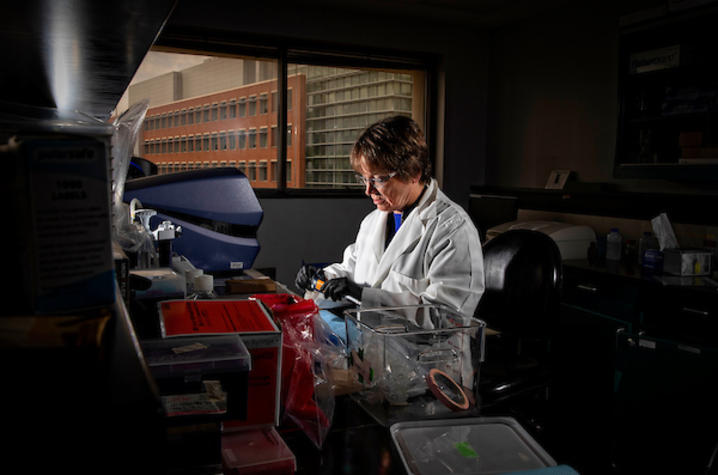
Alzheimer's disease wreaks emotional havoc on patients, who are robbed of their memories, their dignity, and their lives. It’s financially devastating as well: care for Alzheimer's patients is predicted to top $1 trillion by about the time children born today are having children of their own.
To date, there have been very few successes in the pursuit of a treatment. But one drug that looks at Alzheimer's Disease (AD) from a different angle is now ready for its first round of testing in humans.
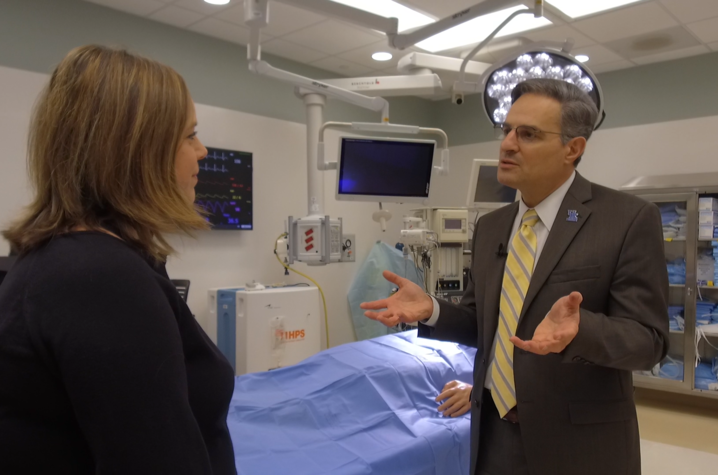
The responsibility of leading the charge to educate a new generation of health care providers, researchers and leaders isn’t something University of Kentucky College of Medicine Dean Robert DiPaola takes lightly.
With the challenges facing health care today, he hopes to position UK as a national leader in solving those issues through multidisciplinary research, transformational education and advanced clinical care.
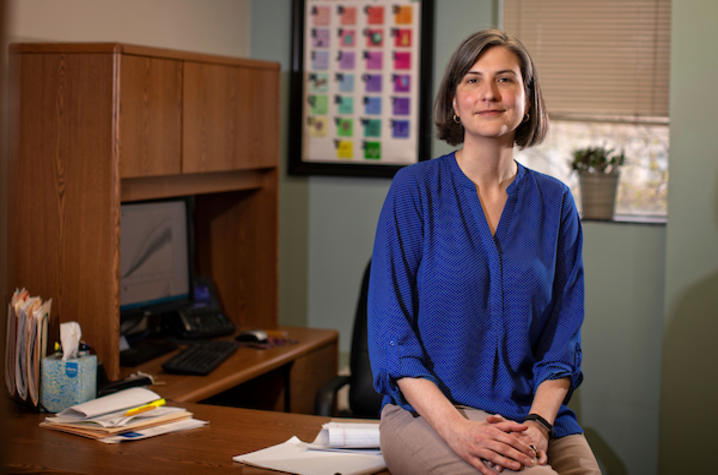
It's an irrefutable fact that smoking is bad for you. Study after study has proven that smoking increases your risk for cancer, heart disease, diabetes – even blindness.
But dementia? Not so fast. A recent study has demonstrated that smoking is not associated with a higher risk of dementia.
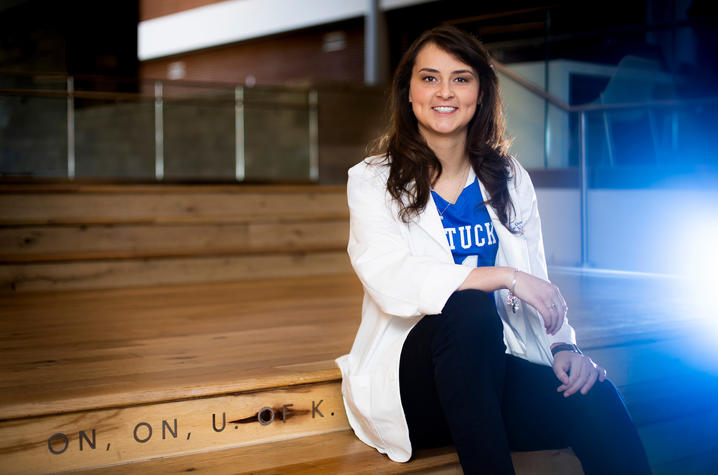
Athletics teaches discipline, commitment and perseverance. All of those skills are valuable on the court, in the classroom and in life. For first year medical student Rachel Potter, a lot of the discipline and time management she applies to her studies she learned while a member of the University of Kentucky Women’s Basketball team.

After four years of medical school and numerous interviews, University of Kentucky College of Medicine students found out where they will continue their medical education in residency programs. Match Day is a culmination of the hard work and dreams of students on the path to becoming doctors.

Dr. Carol Steltenkamp, professor of pediatrics at the University of Kentucky, has been appointed external chief medical officer for UK HealthCare. In this new role, she represents the voices of clinicians in strategy, outreach and communications. Working on behalf of the Office of the UK Executive Vice President for Health Affairs, she is responsible for developing and maintaining strategic clinical alliances with physicians and health care organizations throughout the Commonwealth of Kentucky and beyond.
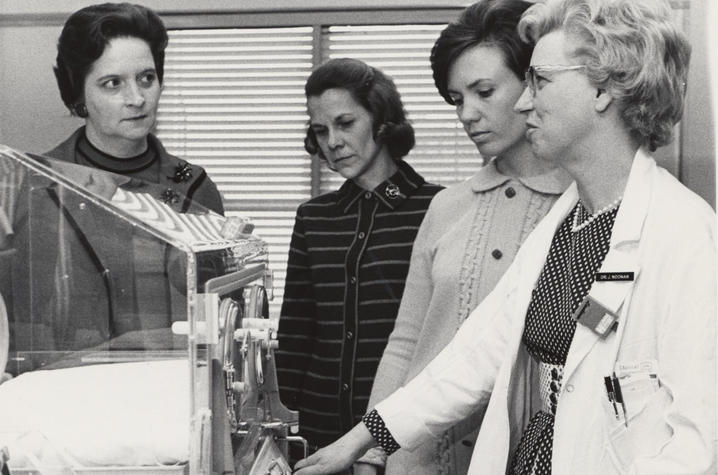
The University of Kentucky community is celebrating Women’s History Month. Throughout March, UKNow will feature the women — past and present — on whose shoulders we stand and whose hard work has made our achievements possible. With a combination of fierce resolve and deep compassion, UK women have left indelible marks on our university. Join us as we highlight these #WomenOfUK.
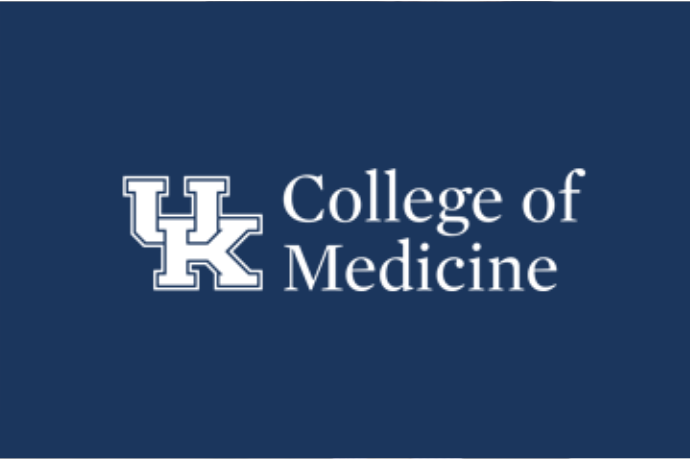
During February's celebration of Black History Month, the University of Kentucky College of Medicine’s Faculty of Color Network (FCN), with funding from the College of Medicine Diversity & Inclusion Office led by Dr. Renay Scales, honored two living legends and pioneers of the college.
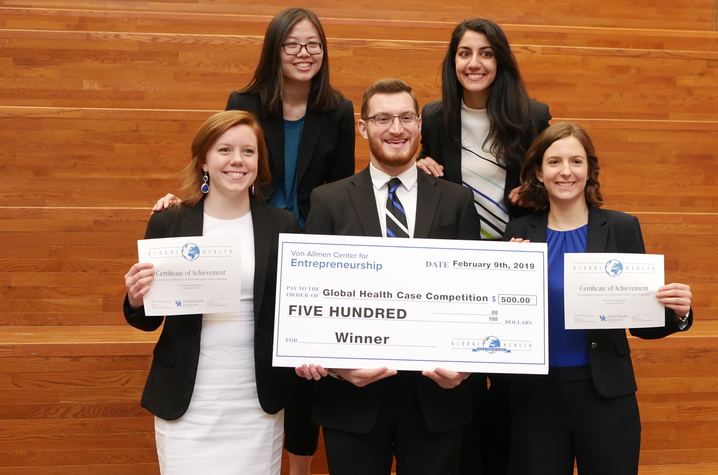
Five students from the University of Kentucky placed in the UK Global Health Case Competition (GHCC), which rallied both undergraduate and graduate students from various colleges to collaborate on revolutionary research. Together, they worked toward a common goal — solving a global health concern. This year, competitors were tasked with tackling refugee health.
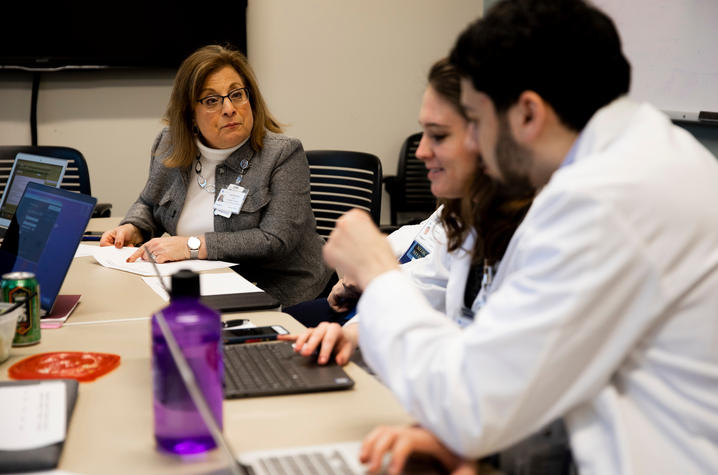
At the intersection of exceptional patient care and remarkable education is the willingness and desire to adapt. The most forward-thinking health care delivery systems embrace interprofessional collaborative practice as a way to improve quality of care.
The University of Kentucky Department of Family and Community Medicine has embraced transformation of care by providing an early interprofessional clinical experience: the TEAM Clinic model.
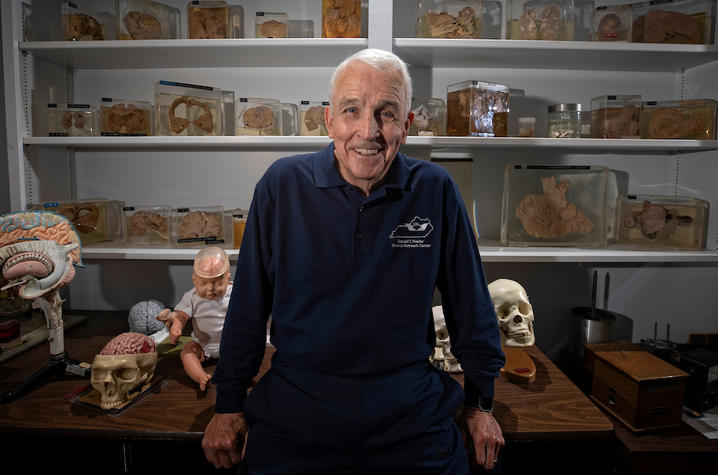
Through a recent five-year, $2.3 million grant from the National Institutes of Health (NIH), University of Kentucky faculty Don Frazier and Brett Spear will partner with faculty from qualified minority-serving institutions across the U.S. and Puerto Rico to help improve diversity in science and health care.
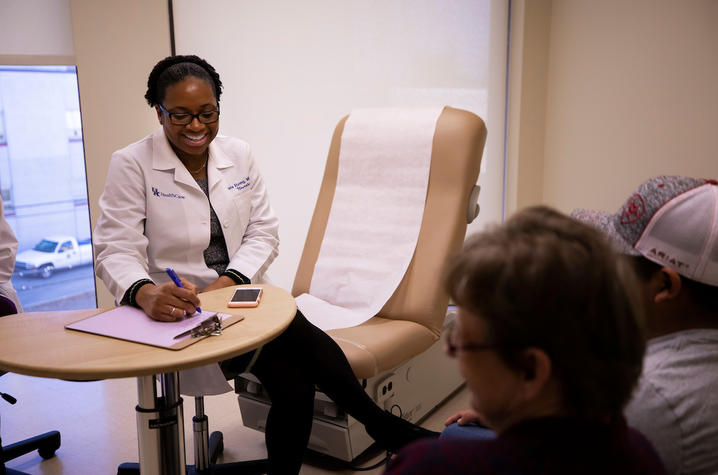
A meeting in early 2010 sparked Dr. Ima Ebong's passion to advocate for greater minority representation in medical school — a passion that has propelled her to national recognition for her work.



